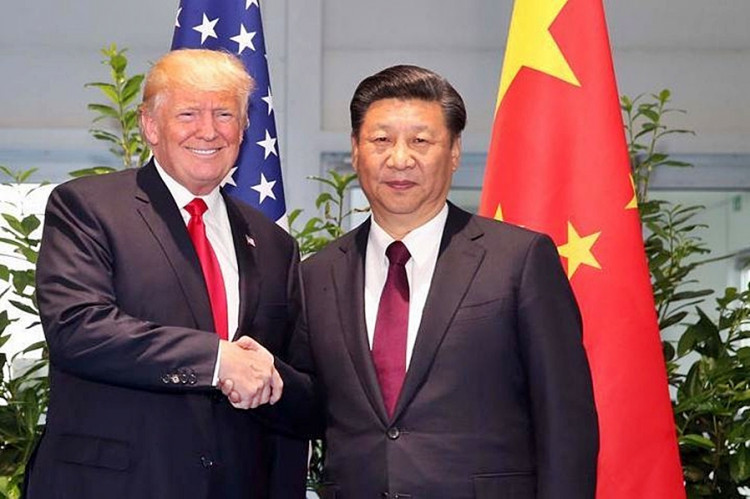U.S. president Donald Trump again backtracked on a promise to get tough on China, this time asking Congress to strengthen the Committee on Foreign Investment in the United States (CFIUS) instead of passing harsh legislation limiting Chinese investments.
Some members of Congress feel Chinese investments will lead to transferring U.S. technology that might eventually be used to threaten U.S. national security. CFIUS regulates investments in American firms made by China and other countries suspected of stealing U.S. technology.
China reacted warmly to Trump's move to not directly target Chinese investors, with a ranking official saying Beijing won't be angry "as long as they don't discriminate against us."
Trump previously indicated his support for moves to impose far stricter limits on Chinese investments in U.S. technology firms. This time, however, Trump seems to have unilaterally decided not to further inflame rising trade tensions with China by offering this carrot.
Both houses of Congress are strongly against Trump softening the U.S.' tough stand on Chinese investments, and recently passed legislation affirming their opposition to Trump lifting sanctions on China's state-owned ZTE Corporation.
Sen. Marco Rubio (R-FL), a determined anti-China legislator, immediately blasted Trump's move to go soft on Chinese investment in U.S. firms.
"If in fact, President Trump is now backtracking on tough limits on Chinese investment, it is a VERY BIG MISTAKE," tweeted Rubio. "#China is strategically buying up U.S. companies specializing in cutting-edge technology. What they don't steal from us they buy away from us."
Rubio is also asking Trump to defend a pledge made by the White House on May 29 for "specific investment restrictions and enhanced export controls for Chinese persons and entities related to the acquisition of industrially significant technology."
A number of top Trump administration officials, including Director of the White House National Trade Council Peter Navarro, champion far stricter investment restrictions directed squarely against China. Navarro wants an executive order from Trump mandating that companies at least 25 percent owned by a foreign government be automatically banned from investments involving American companies.
On the other hand, what Trump wants is for CFIUS to be given new powers that "will enhance our ability to protect the United States from new and evolving threats posed by foreign investment while also sustaining the strong, open investment environment to which our country is committed and which benefits our economy and our people."
Established by former U.S. president Gerald Ford, CFIUS is an inter-agency committee that reviews the national security implications of foreign investments in U.S. companies or operations. Its chairman is Secretary of the Treasury Steve Mnuchin, who is known to be more conciliatory towards China compared to other leaders of Trump's trade team such as Navarro.
Mnuchin also supports strengthening existing laws that permit the federal government to review and reject foreign investments with national security implications.
The U.S. House of Representatives this week approved a bill to strengthen the CFIUS law. A joint House-Senate conference committee on defense policy will also explore and act on this move.
Xiao Yaqing, chairman of the State-owned Assets Supervision and Administration Commission (SASAC), said Beijing supports moves that are anti-discriminatory. SASAC, which regulates the biggest state-owned industrial conglomerates, is the largest economic entity in the world with revenues of more than $3.6 trillion and assets worth $7.6 trillion.
SASAC is responsible for managing a specific type of SOEs (state-owned enterprises). It appoints top executives; approves any mergers or sales of stock or assets and drafts laws related to SOEs.
"We don't see any problem ... we always follow international rules and the laws of the investment destination countries," said Xiao.
Political analysts said Xiao's comments night herald a further easing of tensions between the China and the U.S. following the trade war launched by Trump against China.





